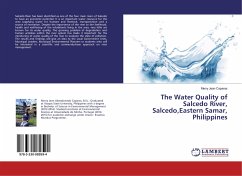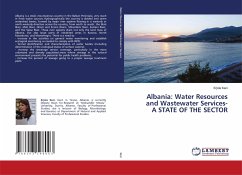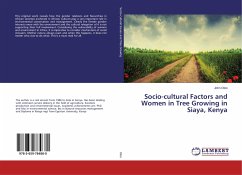Namibia, among the driest countries in sub-Saharan Africa, faces extreme scarcity and fragility in its water resources. The central region relies on ephemeral streams, contributing 22% of surface water during the rainy season. The Otjiseru River, upstream of the Swakopoort Dam, is crucial for Windhoek's water supply. Monitoring its water quality is vital to mitigate ecological impacts and prevent waterborne diseases. This research informs policymakers, water management institutions, and stakeholders about water quality status and land use impact, aiding holistic water resource protection. It enhances communication on river pollution, improves data collection, and identifies major pollutants for corrective action, thus enhancing social well-being and productivity. This study also assesses the effectiveness of current water quality laws in managing pollution.
Hinweis: Dieser Artikel kann nur an eine deutsche Lieferadresse ausgeliefert werden.
Hinweis: Dieser Artikel kann nur an eine deutsche Lieferadresse ausgeliefert werden.








